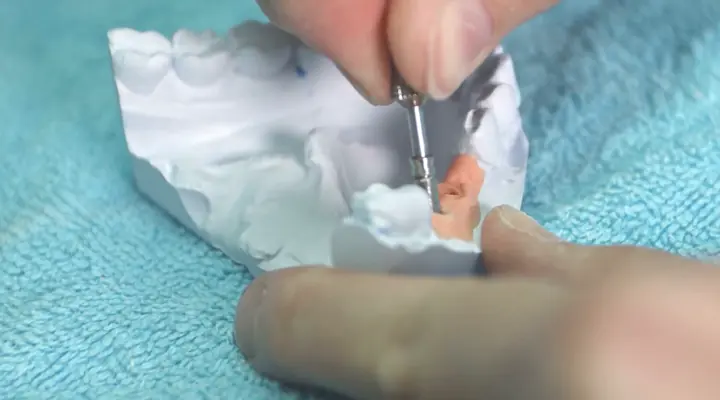Get Your Smile Back
Long-Lasting, Natural-Looking Dentures
Whether we are replacing a full set of dentures, getting a new whole set of teeth, or repairing your existing set we have the know-how.
How Do Dentures Work?
Affordable Alternative To Dental Implants
Dentures are an affordable alternative to dental implants. A denture is a removable prosthetic used to replace missing teeth. We make our dentures from natural-looking, gum-colored bases, which support a full set of artificial teeth. Your dentures are custom-made to your unique specifications for the best comfort, fit, and quality.
Depending on the extent of your tooth loss, there are two types of dentures available:
- Partial dentures, which are recommended for replacing two or more missing teeth.
- Complete or full dentures, which are recommended in cases of full mouth tooth loss.
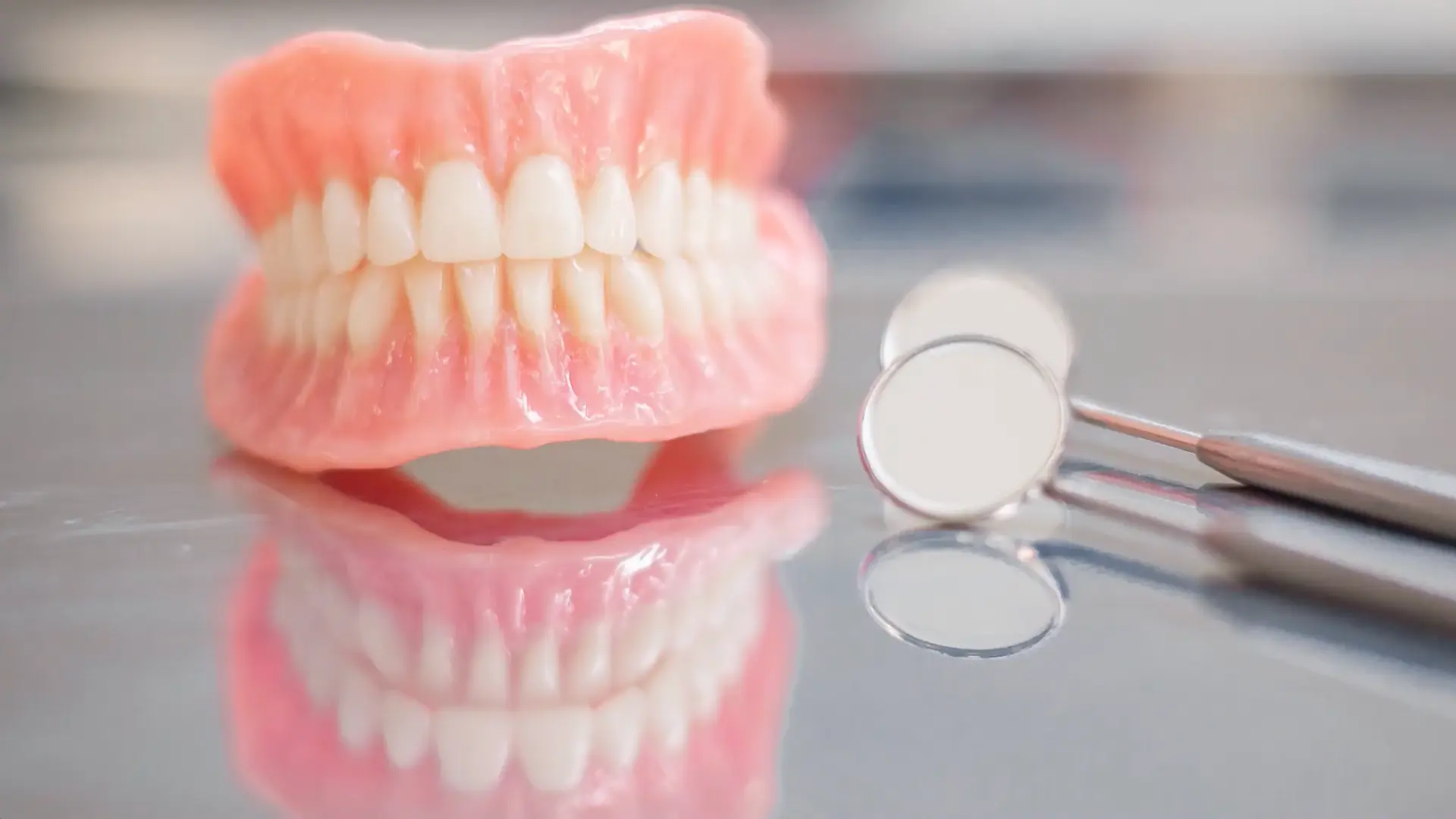
What is Denture Stabilization?
Innovative Solutions for Healthier Smile
Learn About Snap-In DenturesIf you’re looking for a more secure, confident, and comfortable fit for your dentures, our Rock Hill SC dentists may recommend denture stabilization.
This refers to the process of anchoring your denture to your jaw with dental implants and special attachments. Your denture will still be removable for ease of cleaning, but it will remain secure throughout the day.
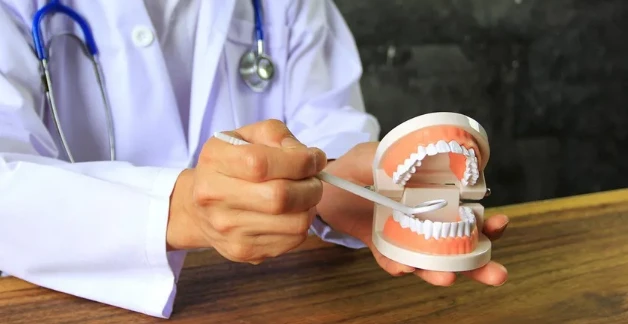
Crafting Your Custom New Smile
Tailored Processes For A Perfect Fit
At River District Smiles, we understand the importance of a natural-looking smile that fits perfectly along your unique gumline. Our dentures process is tailored to your individual needs, aiming to provide you with dentures that are indistinguishable as "false teeth."
Contact Us
Initial Diagnosis and Digital Impressions: Your journey begins with a comprehensive assessment during your first appointment. Utilizing our advanced intraoral scanner, we'll take digital impressions of your mouth. Say goodbye to uncomfortable goopy paste impressions of the past – these digital renderings ensure a precise fit and enhanced comfort for your dentures.
Wax Bite and Try-In: Following the initial diagnosis, a wax bite is created to establish the proper vertical dimensions and jaw position for your dentures. You'll then have a physical "try-in" session to evaluate the color, shape, and fit of your final dentures. This step allows us to make any necessary adjustments to ensure your satisfaction.
Creation and Final Fitting: Once the design is perfected, our state-of-the-art partner dental lab meticulously crafts your dentures to our exact specifications. When your dentures are ready, you'll return to our office for a final fitting. We'll ensure that your dentures not only fit securely but also match the color and shape of your natural teeth, restoring your beautiful smile. At River District Smiles, we're committed to providing you with personalized care and exceptional results. Your journey to a custom new smile starts here!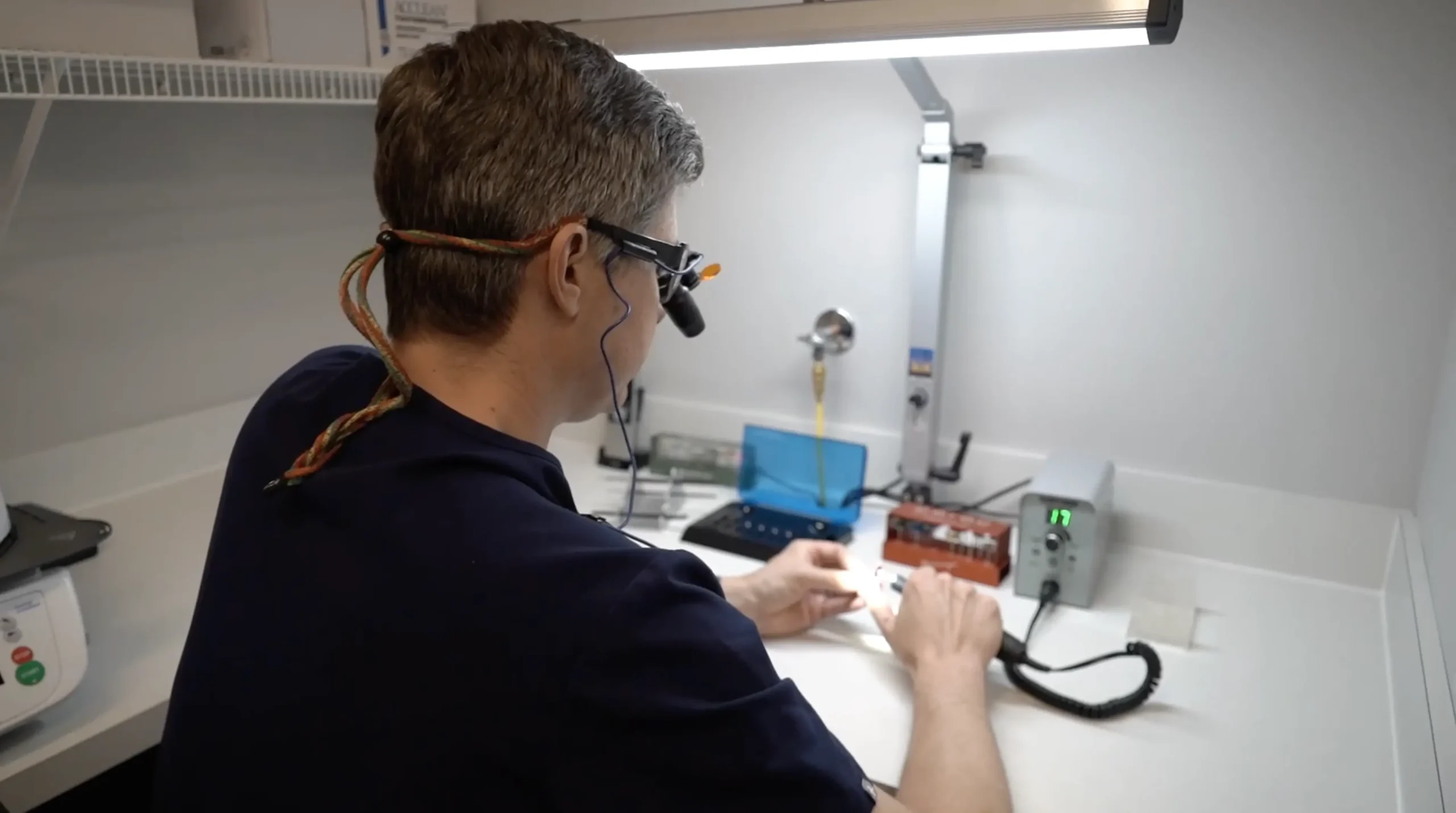
Complete Dentures
Candidates for complete dentures, having lost most or all teeth, opt for either upper or lower, or both, replacements. These "traditional" or "conventional" dentures necessitate a subsequent fitting appointment.
Immediate dentures, an alternative for some, are inserted post-tooth removal, ensuring no period without teeth during healing. Preliminary measurements and jaw models enable this swift transition. Immediate dentures offer the significant advantage of uninterrupted tooth presence throughout the healing process.
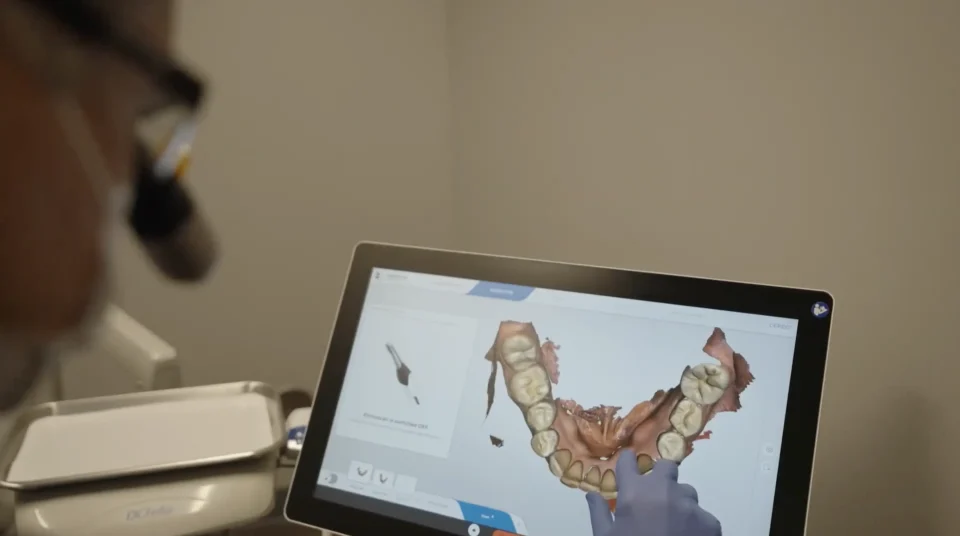
Partial Dentures
A partial denture suits those with some natural teeth remaining, filling in gaps and preventing tooth shifting. Removable partial dentures offer replacement teeth on a gum-colored base, linked by a metal framework with clasps or precision attachments.
Alternatively, overdentures fit over a few natural teeth or implants, requiring preparation for stability. Precision attachments are aesthetically preferable to metal clasps, and crowns on natural teeth can enhance the fit of removable partial dentures.
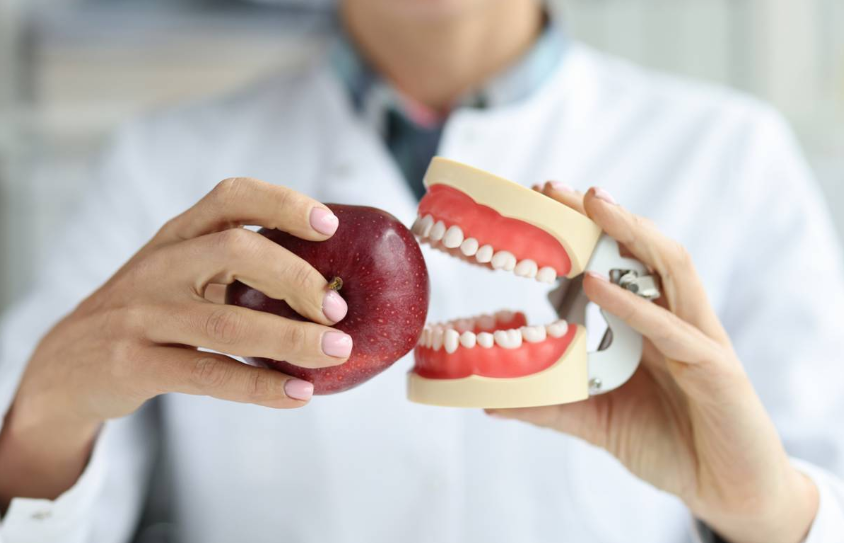
Full dentures & full mouth reconstruction
Full dentures are a prosthetic dental appliance that is used to replace a full arch of missing teeth. They are custom-made to fit the user’s mouth and provide them with the ability to chew and speak normally.
Full dentures can be made from either acrylic or metal and may be removable or fixed in place with dental adhesive. Full dentures also help restore facial structure and support the lips and cheeks, giving a more natural look to the face. Some prefer implant retained dentures or overdenture.
After all the natural teeth are taken out, conventional full dentures are provided to patients. However, the healing process of gum tissue can take several months before they can be placed. Full dentures can be put into the mouth right after the natural teeth have been pulled out. These dentures may require multiple adjustments in the early months of use, to ensure proper fit and function.
Immediate dentures, both partial and full, are designed to rest on the gum tissue. This suction helps them stay securely in place while you eat and talk. Denture adhesive is an excellent way to make sure your dentures stay in place and no food particles get stuck underneath them. If you take good care of them, full dentures can remain in a usable condition for up to ten years.
You might also hear about complete dentures, which work almost the same as your existing teeth. Complete dentures are a removable, clear acrylic set of teeth that can be fabricated and repaired fairly easily. They work just as well as natural teeth, but because the dental arch remains intact, they’re more affordable and look more natural than implants.
Caring for Full Dentures
When caring for full dentures, it is important to keep them in good shape. Regular cleaning and proper storage are essential, but regular visits to the dentist can help ensure your dentures stay functioning properly.
Full dentures & full mouth reconstruction
Full dentures are a prosthetic dental appliance that is used to replace a full arch of missing teeth. They are custom-made to fit the user’s mouth and provide them with the ability to chew and speak normally.
Full dentures can be made from either acrylic or metal and may be removable or fixed in place with dental adhesive. Full dentures also help restore facial structure and support the lips and cheeks, giving a more natural look to the face. Some prefer implant retained dentures or overdenture.
After all the natural teeth are taken out, conventional full dentures are provided to patients. However, the healing process of gum tissue can take several months before they can be placed. Full dentures can be put into the mouth right after the natural teeth have been pulled out. These dentures may require multiple adjustments in the early months of use, to ensure proper fit and function.
Immediate dentures, both partial and full, are designed to rest on the gum tissue. This suction helps them stay securely in place while you eat and talk. Denture adhesive is an excellent way to make sure your dentures stay in place and no food particles get stuck underneath them. If you take good care of them, full dentures can remain in a usable condition for up to ten years.
You might also hear about complete dentures, which work almost the same as your existing teeth. Complete dentures are a removable, clear acrylic set of teeth that can be fabricated and repaired fairly easily. They work just as well as natural teeth, but because the dental arch remains intact, they’re more affordable and look more natural than implants.
Caring for Full Dentures
When caring for full dentures, it is important to keep them in good shape. Regular cleaning and proper storage are essential, but regular visits to the dentist can help ensure your dentures stay functioning properly.
Partial Dentures
Partial dentures are a removable dental prosthesis that replaces missing teeth and is connected to your remaining natural teeth. They are a good alternative to bridges, which are usually permanent.
Partial dentures are often used to replace teeth in the front of your mouth, as well as back teeth, because they can be removed and worn during the day. Partial dentures are not suitable for replacing entire sets of teeth.
A partial denture may be a metal, plastic or ceramic device. Ready-made partial dentures are available from dental laboratories and specialty tooth retailers. They may also be made by a dental lab in consultation with the client’s doctor. You will need to visit your dentist for an examination so that he or she can determine the type of denture needed and set it up for optimal use.
Materials Used for Partial Dentures
Dentures may have a plastic (resin) or metal base, the latter often a mixture of cobalt and chromium. This choice is made by the dentist according to the patient’s needs.
Plastic and Polymers
Plastic bases for dentures are less expensive than metal based ones as metal is lighter and more durable. The Oral Health Foundation further emphasizes this point.
Plastic or polymer-based dentures have certain advantages over metal-based ones, such as being aesthetically appealing, easy to make and repair, lightweight and flexible.
Metal
Titanium-based dentures can result in inflammatory reactions for approximately 0.6% of patients. Thus, dentists usually opt for larger partial dentures made from titanium.
Flexible
Flexible dentures require a different insertion process than the other denture types. Metal and plastic-based dentures usually have to be placed directly in your mouth.



